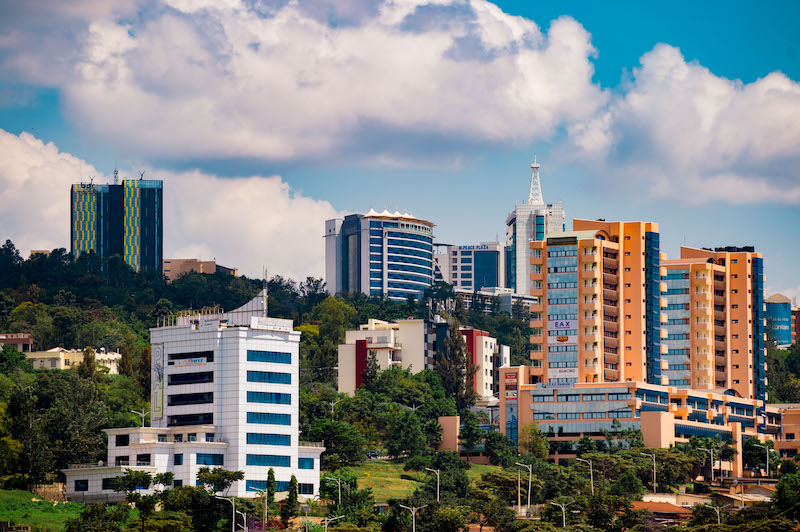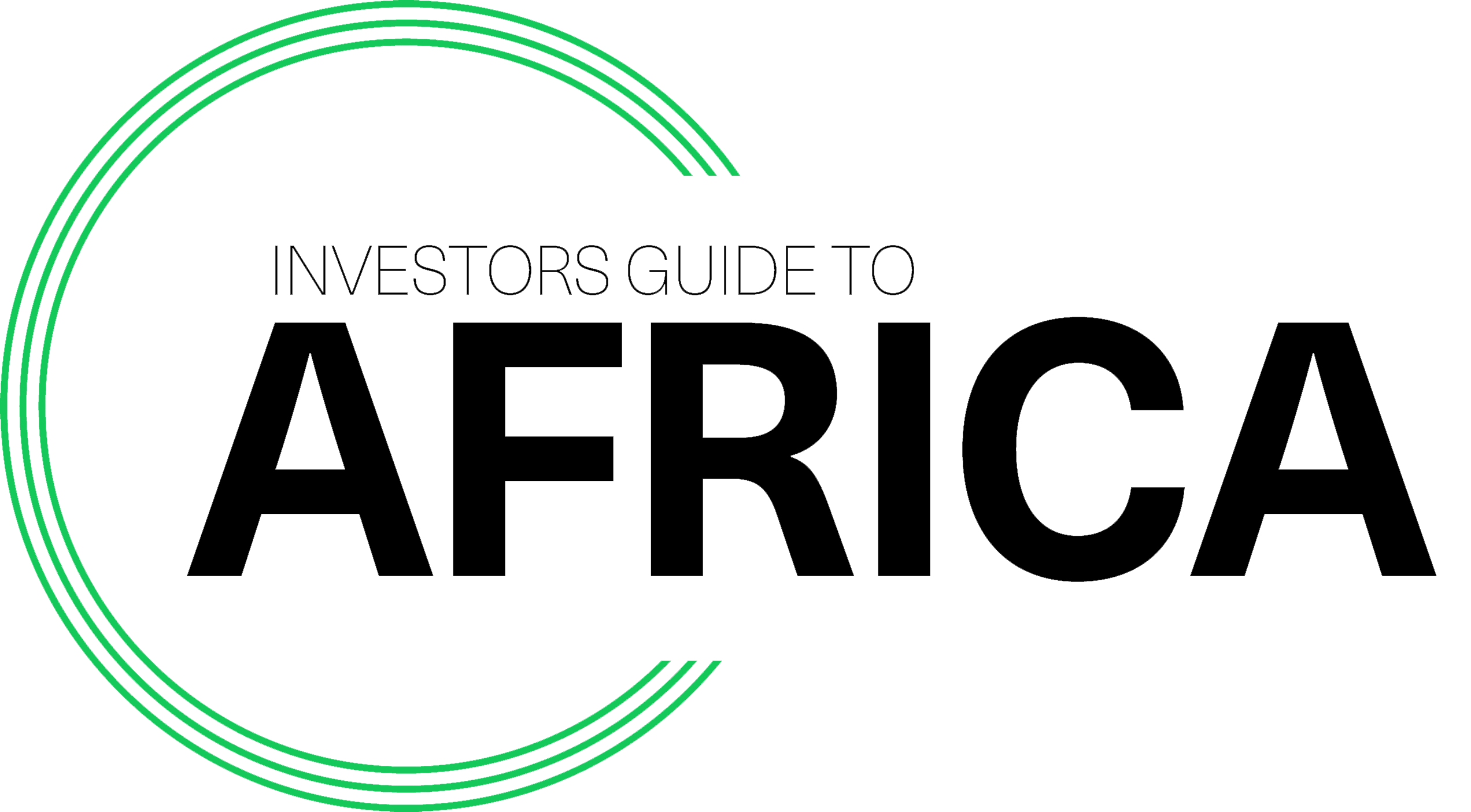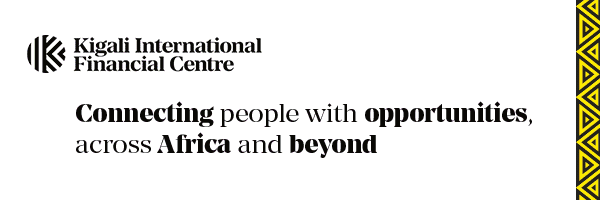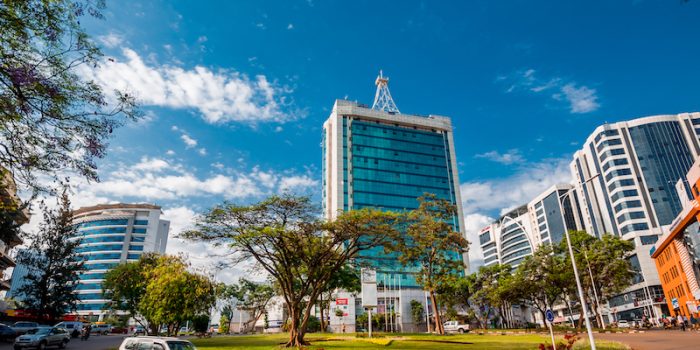Rwanda’s Vision
Investors Guide to Africa speaks to Nick Barigye, Chief Executive Officer of Rwanda Finance Limited (RFL), the agency responsible for developing and promoting Kigali International Financial Centre (KIFC) and positioning Rwanda as a preferred financial jurisdiction for investments into Africa.
IGTA: The vision is for Kigali International Financial Centre to catalyse Rwanda’s socio-economic development by unlocking capital. To what extent is this vision being realised?
Nick Barigye: Our Vision 2050sets the long-term strategic plan for the country to become an upper middle-income country by 2035 and a high-income country by 2050. To achieve this, we need to be innovative and attractive to local, regional, and international investors. The Kigali International Financial Centre (KIFC) represents Rwanda’s aspirations andplays a crucial role in unlocking new investment to facilitate Rwanda’s economic potential.

Over the last two years, we have been working hard to develop the necessary infrastructure and regulatory framework to attract financial institutions, both domestic and international; to improve the ease of doing business in Rwanda; to diversify the financial services offered; and to strengthen the compliance framework in ensuring the stability and integrity of the financial sector. This is crucial for gaining the trust of investors and institutions.
So far, we have attracted more than 100 investment structures including holding companies, funds, and FinTechs among others, to domicile in the country. This has contributed to Rwanda’s economy growing 9.2% in the first quarter of 2023, following an 8.2% increase in 2022 (The World Bank, 2023).
IGTA: Which reforms acting to facilitate trade and investment, enhance Rwanda’s status as a transparent and compliant jurisdiction, and increase its ease of doing business credentials are you most excited about and why?
Nick Barigye: In the last two years, 19 laws have been enacted, 17 Double Tax Avoidance Agreements (DTAAs) have been signed and we have formed important strategic alliances with seven different international financial centres, including Jersey Finance, Qatar IFC, Casablanca IFC, Astana IFC, and three DFIs, including British International Investment.
The journey so far has been remarkable, and we have been ranked at the top of African nations in international surveys. In 2020, Rwanda was second in the World Bank Ease of Doing Business Index and fourth in sub-Saharan Africa by the World Economic Forum (WEF) Global Competitiveness Index. In 2021, we were recognised as the first most innovative low-income country by Global Innovation Index.
The newly established Financial Intelligence Centre (FIC) has also joined the list of established regulators mandated to ensure the integrity of Rwanda’s financial systems. Alongside the National Bank of Rwanda, Capital Markets Authority, and Rwanda Development Board, FIC will ensure effective financial monitoring and compliance with the Financial Action Task Force (FATF) requirements.
IGTA: What can you tell us about the range of incentives in place designed to stimulate foreign direct investment?
Nick Barigye: To be a unique hub, capable of facilitating international investment, cross-border transactions, and business expansion opportunities, we have provided a base conducive to the structuring of various investment vehicles.
By tightening our anti-money laundering and counter financing of terrorism laws, we have built high levels of trust among investors.
Some of the new tax laws have also provided incentives in terms of freedom to repatriate profit and capital across the region. As a result, we have seen peak interest among regional and African-based investors looking for alternative financial domiciles for their investments on the continent.
Last year, Rwanda was one of the first eight countries that started trading under the AfCFTA’s Guided Trade Initiative preferential terms. We are also members of the East Africa Stock Exchanges Association (EASEA) which enables cross-listing opportunities for regional institutional investors, across the region and beyond.

We have built a sound and vibrant financial services sector backed by fintech-led innovations which is paramount in widening and diversifying financial products and legal structures offerings, such as investors seeking to establish investment funds and special purpose vehicles to fund regional projects.
KIFC also understands that sustainability is a key driver to be competitive, which is why we are developing avenues for environmental, social, and governance (ESG)-driven investments. We are already seeing an accelerated shift towards green and sustainable financing having recently joined the Financial Centres for Sustainability. Last year, at COP27, Rwanda presented herself as an ideal destination for green investment and launched the 10-year Sustainable Finance Roadmap alongside the Government’s green investment facility “Ireme Invest”.
In recognition of our reforms for climate adaptation and mitigation, in 2022, Rwanda was one of the first three countries and the first African country to benefit from financing under the International Monetary Fund’s Resilience and Sustainability Trust (RST).
IGTA: How is Rwanda’s ongoing economic diversification best evidenced?
Nick Barigye: Rwanda has been one of the best performers for economic growth in the last two decades, with an annual GDP growth rate averaging 7.1% and leading sectors in energy, agriculture, trade and hospitality, and financial services.
The establishment of KIFC is part of the country’s economic diversification strategy, one of the long-term goals being to advance our financial sector by introducing new services and products.
By providing tax incentives for forward-thinking FinTechs and enacting critical laws to establish a pro-business regulatory framework, Rwanda has seen an increasing number of unicorns, such as Chipper Cash, choose Kigali as a base to consolidate their regional operations.
Earlier this year, in partnership with Elevandi, we hosted Africa’s first-ever global flagship fintech event which brought together the most important African and global decision-makers in fintech, solidifying Rwanda’s aspiration to become the ‘Home of FinTech’s in Africa.’
However, we know that individual economies can be too small to accommodate fintech unicorns or other large companies, so it is crucial that African governments work together on market integration to facilitate the growth of their fintech sector.
Through Rwanda’s five-year fintech strategy, we want to maximise the potential that fintech holds for economic growth and socio-economic transformation by 1. positioning Rwanda as a proof of concept for fintech and 2. establishing Rwanda as a launchpad for fintech.
There is a strong push by the government for Rwanda to shift to a cashless economy and to achieve nationwide financial inclusion. For this reason, KIFC is building an innovation-friendly regulatory environment that attracts investment funds and venture capital to drive the fast-growing fintech sector.
IGTA: Is Rwanda on track in its quest to transform into a pan-African financial hub?
Nick Barigye: Absolutely. Rwanda has enjoyed a period of political stability, has implemented reforms to enhance the business environment; has been investing in infrastructure development, including the construction of modern financial districts and technology hubs; has leveraged technology and innovation to drive financial inclusion; and has been actively involved in regional economic integration.
We have invested in world-class aviation infrastructures making Kigali an African air travel hub due to its geographic location and high-quality conference facilities. Today, Rwanda is regarded as a global conference hub. These factors, coupled with significant investments in ICT and innovation, as well as being part of three regional economic blocs, mean that we are on the right path to becoming a pan-African financial hub.
Growing the stature of Rwanda as a pan-African financial hub will lead to the creation of jobs in various sectors, such as banking, insurance, legal, tax, trust service provision, fund management, and regulatory fields, while also improving the skill set of the local workforce.
Recently, KIFC was ranked third in Africa and second in Sub-Saharan Africa on the Global Financial Centres Index (GFCI) and was ranked among the top 15 centres globally, likely to become more significant in the future.
IGTA: What progress has there been in increasing female representation in the fintech sector and why do you think this will help to advance financial inclusion in Rwanda?
Nick Barigye: Fintech has the potential to revolutionise Africa’s economies by increasing financial inclusion, driving economic growth, and creating new jobs and business opportunities.
In Africa, the share of fintech companies founded by women is double the global average but, unfortunately, the figure is still just 3.2% – according to Findexable, a market research company that tracks gender diversity. Moreover, while 30% of tech professionals in sub-Saharan Africa are women, the share of women in fintech remains well below the industry average. If the industry is to continue to expand and strengthen access to financial services and credit, it needs not only to serve women, but also to be shaped by them.
Rwanda is a regional leader in gender equality, and we have seen a tremendous increase in female ownership of individual enterprises in the past 5 years, showcasing the growth of women entrepreneurship in Rwanda. But, despite the progress in financial inclusion that fintech has enabled, more than three-quarters of Rwandan women still lack access to a bank account.
Rwanda is determined to close the gender gap by developing gender-inclusive financial policies and creating guidelines for banks and microfinance organisations to help design products that address women’s needs.
Financial literacy is also very important, so we are working with our partners to empower women and educate them on digital financial services such as the establishment of the pan-African fund to support tech and education sectors.
Our aim is to have equal access by 2027.


